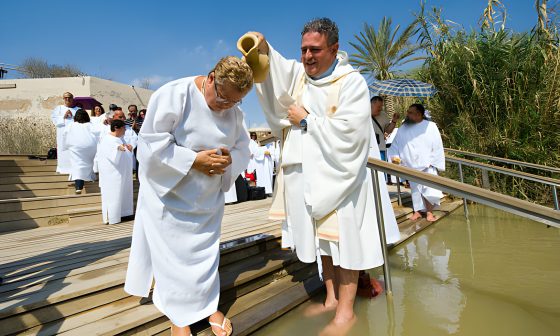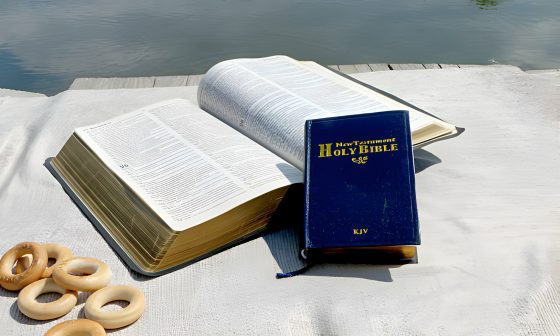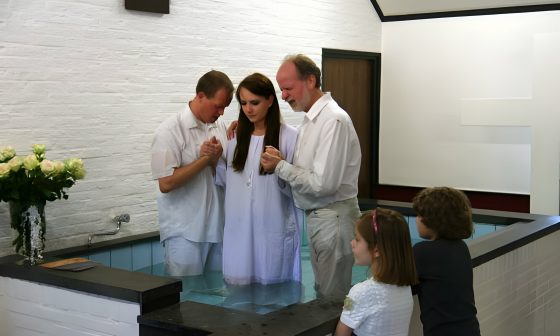Baptism is a sacred rite in Christianity, symbolizing the cleansing of sins and the initiation into the Christian faith. Traditionally, baptism has been performed by ordained clergy, such as priests or ministers. However, in certain circumstances, the Catholic Church and other Christian denominations allow for exceptions to this rule, including the possibility of a woman baptizing someone.
In emergencies or situations where an ordained minister is unavailable, any baptized person, including a woman, can perform a valid baptism as long as they adhere to certain criteria. These criteria typically include using the Trinitarian formula (“In the name of the Father, and of the Son, and of the Holy Spirit”) and ensuring that water is used for the sacrament.
In the Catholic Church, while the ordinary ministers of baptism are bishops, priests, and deacons, in extraordinary circumstances, any person can be baptized provided they have the intention to do what the Church does and follow the prescribed formula. This means that if a woman meets these criteria and is present in a situation where a baptism is urgently needed, she can validly perform the sacrament.
Similarly, in many Protestant denominations, baptism is viewed as an ordinance rather than a sacrament, and the emphasis is placed on the believer’s faith rather than the officiant’s status. Therefore, in these denominations, there may be more flexibility regarding who can perform a baptism, including women.
Qualifications to baptize someone
To baptize someone, certain qualifications are typically expected within various Christian denominations. While these qualifications may vary depending on theological perspectives and denominational practices, some common criteria include:
- Ordination: In many Christian traditions, baptism is considered a sacrament administered by ordained clergy, including bishops, priests, and deacons. Ordination typically involves a formal process of theological education, spiritual formation, and authorization by a religious authority.
- Affiliation with a Church: Ordained clergy are usually affiliated with a specific church or denomination that recognizes their authority to administer sacraments such as baptism. This affiliation ensures accountability and adherence to doctrinal beliefs and practices.
- Understanding of Baptism: The individual baptizing someone should have a clear understanding of the significance and symbolism of baptism within the Christian faith. This understanding includes recognizing baptism as a sacrament or ordinance representing purification, rebirth, and initiation into the Christian community.
- Intent and Belief: The person baptizing should have a sincere intention to administer the sacrament according to the teachings of their faith tradition. They should also affirm their belief in the spiritual significance of baptism as a means of grace and initiation into the body of Christ.
- Authorization by Church Leadership: In some denominations, individuals may be granted specific authorization or permission by church leadership to baptize under certain circumstances. This authorization ensures that the baptism is conducted in accordance with the beliefs and practices of the denomination.
- Spiritual Preparedness: The person administering baptism should be spiritually prepared and committed to their own faith journey. This includes living a life consistent with the teachings of Christianity and being in good standing within their faith community.
- Adherence to Ritual Requirements: Depending on the denomination, there may be specific ritual requirements or liturgical guidelines for administering baptism, such as using water and invoking the Trinitarian formula (“in the name of the Father, and of the Son, and of the Holy Spirit”).
While these qualifications provide a general framework for administering baptism, it’s essential to consult with the specific guidelines and practices of one’s faith tradition or denomination. Additionally, in emergency situations or under extraordinary circumstances where an ordained minister is unavailable, some denominations may allow baptized individuals, regardless of ordination status, to perform a baptism.
Can baptism be done in private
Yes, baptism can be done in private, although the practice may vary depending on religious beliefs and denominational customs. In some Christian traditions, private baptisms are conducted for various reasons, including:
- Emergency Situations: Private baptisms may occur in emergency situations where there is an urgent need to baptize an individual, such as imminent danger to their life or health. In such cases, the sacrament may be administered by a clergy member or even a layperson in the presence of a few witnesses.
- Infant Baptisms: In certain Christian denominations, especially those that practice infant baptism, parents may opt for a private ceremony for their child. This could be due to personal preferences, scheduling constraints, or other reasons that make a private setting more convenient or meaningful for the family.
- Desire for Intimacy: Some individuals or families may prefer a private baptism to create a more intimate and personal experience, away from the distractions of a larger congregation. This allows for a deeper focus on the spiritual significance of the sacrament and meaningful interaction with the officiant.
- Pastoral Care: Private baptisms may also be conducted as part of pastoral care, particularly for individuals who are unable to attend a public ceremony due to illness, disability, or other circumstances. This ensures that those who wish to receive the sacrament can do so in a manner that accommodates their needs and circumstances.
- Family Circumstances: Private baptisms may be arranged for various family circumstances, such as the desire for a small, intimate gathering or logistical challenges that prevent participation in a public ceremony.
While private baptisms are permitted in many Christian traditions, it’s important to consult with the officiant or religious authority overseeing the baptism to ensure that the ceremony is conducted in accordance with the beliefs and practices of the specific denomination. Additionally, even in private settings, the essential elements of baptism, such as the use of water and invocation of the Trinitarian formula (“in the name of the Father, and of the Son, and of the Holy Spirit”), are typically observed to maintain the sacramental integrity of the rite.
Conclusion
In conclusion, while traditionally baptism has been administered by ordained clergy, both the Catholic Church and many Protestant denominations recognize that under specific circumstances, including emergencies, any baptized person, including a woman, can validly baptize someone as long as they adhere to the essential elements of the sacrament.
FAQs (Frequently Asked Questions)
- Is there any biblical evidence of women baptizing individuals?
- While the Bible does not explicitly mention women baptizing, there are historical and theological arguments supporting the practice.
- Do all Christian denominations allow women to baptize?
- Different denominations have varying beliefs and practices regarding women’s involvement in religious rituals, including baptisms.
- What qualifications are required for someone to baptize another person?
- Qualifications for baptismal officiants may vary depending on church doctrine and legal requirements in certain jurisdictions.
- How does the role of women in baptisms reflect broader discussions about gender equality in the church?
- The inclusion of women in baptisms reflects ongoing discussions and debates about gender equality and women’s roles in religious leadership.
- What role does intention play in the validity of a baptism?
- The sincerity and faith of the individual being baptized are considered essential aspects of the validity of the baptism, regardless of the officiant’s gender.






